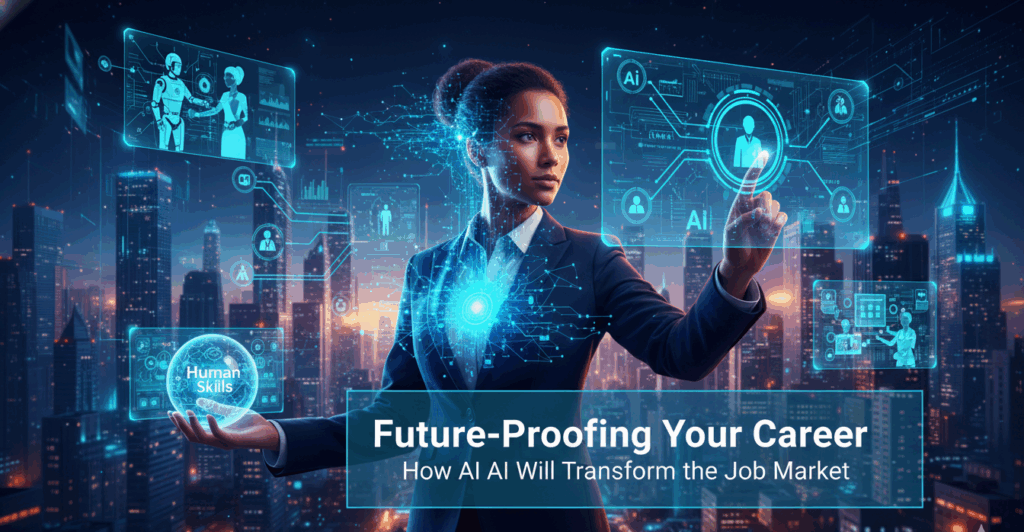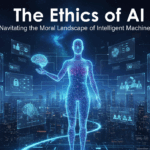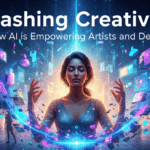The advent of Artificial Intelligence (AI) has sparked both excitement and anxiety in the professional world. Will robots take our jobs? Are our skills becoming obsolete? While it’s true that AI will undoubtedly reshape the job market, the narrative isn’t one of wholesale replacement, but rather one of transformation, augmentation, and evolution. The key to navigating this new landscape isn’t fear, but proactive preparation.
Understanding how AI will impact various industries and roles is the first step towards future-proofing your career. This isn’t just about learning to code or becoming an AI specialist; it’s about developing a new mindset, cultivating uniquely human skills, and embracing lifelong learning to thrive in an AI-powered economy.
The AI Imperative: Why Change is Inevitable
AI’s impact on the job market is driven by its ability to perform tasks with unprecedented speed, accuracy, and scale.
-
Automation of Routine Tasks: AI excels at repetitive, data-intensive, and rule-based tasks. This includes data entry, basic customer service, routine analysis, and even some forms of content generation.
-
Augmentation of Complex Tasks: For more complex roles, AI acts as a powerful assistant, augmenting human capabilities by providing insights, automating tedious parts of a job, and handling vast amounts of information.
-
Creation of New Jobs: Historically, technological revolutions have always created more jobs than they destroyed, though often in different sectors and requiring new skills. AI is expected to follow a similar pattern, generating entirely new roles we can’t yet imagine.
The World Economic Forum’s “Future of Jobs Report” consistently highlights that while AI will displace some roles, it will also create new ones and, crucially, change the nature of existing jobs, requiring new skill sets. The question isn’t if your job will be affected, but how.
The Impact Across Industries: A Closer Look
AI’s transformative power isn’t uniform; its effects will vary significantly across different sectors.
1. Manufacturing and Logistics: The Smart Factory
-
Impact: This sector is already heavily invested in automation. AI enhances robotics for more complex tasks, optimizes supply chains, enables predictive maintenance, and improves quality control.
-
Job Transformation: Repetitive manual labor roles will decline. Demand for robotics technicians, AI system supervisors, data analysts for supply chain optimization, and automation engineers will rise. Human roles will shift towards managing, maintaining, and developing AI-driven systems.
2. Healthcare: Aiding Doctors, Not Replacing Them
-
Impact: AI is revolutionizing diagnostics (image analysis for cancer detection), drug discovery, personalized treatment plans, and administrative tasks.
-
Job Transformation: Doctors and nurses won’t be replaced, but their roles will be augmented. Demand for AI-savvy medical professionals, biomedical engineers, health data scientists, and AI ethics specialists in healthcare will grow. Human skills like empathy, critical thinking for complex cases, and patient interaction become even more central.
3. Finance: Smarter Decisions, Enhanced Security
-
Impact: AI automates fraud detection, algorithmic trading, credit scoring, and personalized financial advice.
-
Job Transformation: Roles involving routine data entry, basic customer service, and repetitive analysis are vulnerable. New roles will emerge for AI compliance officers, quantitative analysts with AI skills, cybersecurity specialists, and financial advisors leveraging AI tools to serve clients better.
4. Customer Service: AI-Powered Support
-
Impact: Chatbots and AI assistants handle routine inquiries, freeing human agents for more complex issues.
-
Job Transformation: Basic call center roles will decrease. Human customer service representatives will become “super-agents” specializing in problem-solving, emotional support, and handling unique customer scenarios, often supported by AI tools providing instant information. Demand for AI chatbot trainers and conversational AI designers will increase.
5. Marketing and Sales: Hyper-Personalization
-
Impact: AI analyzes consumer behavior, personalizes marketing campaigns, optimizes ad spend, and generates leads.
-
Job Transformation: Roles focused on broad, untargeted campaigns will diminish. Marketers will need to become AI-driven strategists, specializing in data analysis, AI tool utilization for segmentation and personalization, and creative content generation (often with AI assistance). Sales professionals will leverage AI for lead qualification and customer insights.
6. Education: Personalized Learning Experiences
-
Impact: AI offers personalized learning paths, automated grading for certain tasks, and adaptive educational content.
-
Job Transformation: Teachers will shift from content delivery to facilitators of learning, mentors, and designers of educational experiences, leveraging AI to cater to individual student needs. Roles for AI instructional designers and educational technologists will become critical.
7. Creative Industries: AI as a Collaborator
-
Impact: Generative AI can create art, music, text, and even video, raising questions about creativity.
-
Job Transformation: While AI can generate content, human creativity, artistic vision, and critical judgment remain paramount. Roles for AI-augmented artists, prompt engineers, content curators, and ethical AI designers will grow. The focus shifts to directing AI, refining its outputs, and infusing it with unique human insight.
The Skills Gap: What AI Can’t (Easily) Do
While AI excels at tasks involving data, logic, and patterns, it currently struggles with certain uniquely human attributes. These are the skills that will become even more valuable in an AI-powered future.
1. Creativity and Innovation
-
Why AI Struggles: While generative AI can produce novel combinations, true creativity involves original thought, breaking established patterns, synthesizing disparate ideas in unexpected ways, and bringing new concepts into existence.
-
Future Relevance: Humans will be the architects of new ideas, the visionaries who define problems, and the innovators who direct AI to achieve groundbreaking results.
2. Critical Thinking and Complex Problem Solving
-
Why AI Struggles: AI can analyze data and identify solutions within defined parameters. However, it often lacks the ability to understand nuanced contexts, identify unforeseen consequences, or challenge underlying assumptions.
-
Future Relevance: Humans will be crucial for defining the right problems to solve, evaluating AI’s outputs with skepticism, making ethical judgments, and navigating ambiguous situations where there’s no single “correct” answer.
3. Emotional Intelligence and Social Skills
-
Why AI Struggles: AI can mimic empathy or understand sentiment, but it cannot genuinely feel or build authentic human relationships. It lacks the nuanced understanding of human emotions, social dynamics, and cultural intricacies.
-
Future Relevance: Skills like empathy, collaboration, persuasion, negotiation, team leadership, mentorship, and building trust will become premium. Any role involving direct human interaction, counseling, or complex teamwork will rely heavily on these interpersonal abilities.
4. Adaptability and Lifelong Learning
-
Why AI Struggles: AI models are trained on historical data. While they can update, they don’t inherently adapt to entirely new paradigms without retraining or significant human intervention.
-
Future Relevance: The pace of technological change will only accelerate. Individuals who can quickly learn new tools, adapt to evolving job requirements, and continuously acquire new skills will be the most resilient.
5. Ethical Reasoning and Judgment
-
Why AI Struggles: AI can be programmed with ethical guidelines, but it cannot intrinsically understand morality, make nuanced ethical judgments in unprecedented situations, or bear moral responsibility.
-
Future Relevance: As AI becomes more powerful, human oversight in ethical decision-making, bias detection, and ensuring responsible deployment will be paramount. Roles in AI ethics, governance, and policy will become increasingly important.
Strategies for Future-Proofing Your Career
Given these shifts, what tangible steps can individuals take to thrive in the AI era?
1. Embrace Lifelong Learning and Reskilling
-
Continuous Skill Acquisition: Don’t view education as a finite process. Actively seek out courses, certifications, workshops, and online learning platforms to continually update your skills.
-
Focus on AI Literacy: Understand the basics of how AI works, its capabilities, and its limitations. You don’t need to be a data scientist, but knowing how to effectively interact with and leverage AI tools is crucial.
-
Upskill in Your Current Role: Look for ways AI can augment your existing job. Can you use AI for data analysis, content creation, or task automation? Become the expert in integrating AI into your specific function.
2. Cultivate Uniquely Human Skills
-
Develop Soft Skills: Prioritize critical thinking, creativity, emotional intelligence, communication, collaboration, and adaptability. These are the areas where humans have a distinct advantage over AI.
-
Problem-Solving: Focus on identifying new problems, framing complex issues, and developing innovative solutions that require human insight and intuition.
-
Ethical Scrutiny: Practice evaluating information critically, especially AI-generated content, and apply ethical reasoning to real-world scenarios.
3. Become an AI-Augmented Professional
-
Learn to Collaborate with AI: Think of AI as a powerful colleague, not a competitor. Learn to use AI tools (e.g., ChatGPT for drafting, DALL-E for ideation, AI analytics platforms for insights) to enhance your productivity and output.
-
“Prompt Engineering”: Developing the skill to articulate clear, effective prompts to AI models to get the desired results is becoming a valuable new skill.
-
Data Fluency: Even if you’re not a data scientist, understanding how to interpret data, identify patterns, and draw conclusions from AI-generated insights will be vital.
4. Focus on Complex, Non-Routine Tasks
-
Strategic Roles: Jobs that require high-level strategy, complex decision-making, human judgment, and nuanced problem-solving are less susceptible to full automation.
-
Interdisciplinary Roles: Roles that bridge different fields and require synthesizing knowledge from various domains will be highly valued.
-
Creative and Innovative Roles: Any job that involves generating truly new ideas, products, or artistic expressions will remain critical.
5. Build Strong Networks and Personal Branding
-
Human Connection: In a world increasingly driven by AI, genuine human connection, mentorship, and collaboration become even more important.
-
Thought Leadership: Share your insights on how AI is impacting your industry, demonstrating your adaptability and forward-thinking mindset.
-
Showcase Your “Un-AI-able” Skills: Highlight projects and experiences that demonstrate your creativity, emotional intelligence, and complex problem-solving abilities.
6. Consider Entrepreneurship and New Ventures
-
AI as an Enabler: AI lowers barriers to entry for many businesses, allowing individuals to create innovative products and services with less capital and fewer resources.
-
Identify AI Gaps: Look for problems that AI can solve but hasn’t yet, or niches where AI can be applied creatively.
Conclusion: The Future is Human-AI Collaboration
The transformation of the job market by AI is not a future to be feared, but a challenge to be embraced. While some jobs will undoubtedly change or disappear, the opportunity for human potential to be augmented and amplified by AI is immense.
The future-proof career is one built on a foundation of continuous learning, the cultivation of uniquely human skills, and the willingness to adapt and collaborate with intelligent machines. By becoming proactive participants in this AI revolution, rather than passive observers, individuals can not only safeguard their careers but also contribute to a more innovative, efficient, and human-centric future of work. The era of human-AI collaboration is here, and those who learn to thrive within it will shape the world to come.


